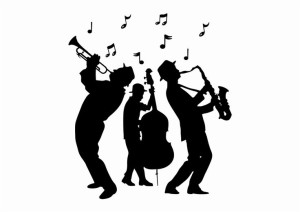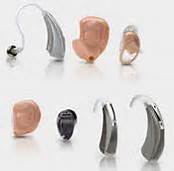 This month we are featuring Dr. Gary Johnson in our plan to introduce all the fine folks at Advanced Hearing Group. We pride ourselves on choosing only the most talented, caring professionals to be a part of our staff and we think you’ll agree that Dr. Johnson is a true standard of everything an audiologist should be!
This month we are featuring Dr. Gary Johnson in our plan to introduce all the fine folks at Advanced Hearing Group. We pride ourselves on choosing only the most talented, caring professionals to be a part of our staff and we think you’ll agree that Dr. Johnson is a true standard of everything an audiologist should be!
Dr. Johnson’s educational background includes a Bachelor Degree in Communication Disorders and Psychology and a Clinical Doctorate of Audiology from the University of Connecticut. He completed his externship right here at Advanced Hearing Group in 2007.
During his residency, he came to love Arizona and the people who welcomed him into the community. By 2008, Dr. Johnson was the primary provider for the two Advanced Hearing Group locations in Scottsdale and helped in the Mesa location as needed. His commitment to his patients and his love for helping them successfully manage their hearing health grew until he took the big step and purchased both the North Scottsdale and South Scottsdale locations in 2011. We love that story – from resident to owner – that’s exactly the way it should be!
Dr. Johnson and his wife, Vikki (who also is very involved in the Advanced Hearing Group practice) are the proud parents of two children, Axel (10) and Dylan (8). The boys are heavily involved in sports and loving the freedom of summer vacation. As a family, the Johnsons enjoy traveling – especially to the beach, volunteering, and sports (GO UCONN!).
Dr. Johnson says his greatest accomplishment this far is successfully running a business in which he can support his family, help his patients, give back to the community, and provide employment opportunities. We agree – that’s a huge accomplishment from which so many benefit! His future goals include continuing to grow the Advanced Hearing Group organization and remaining a pillar in the community.
We asked Dr. Johnson if there was anything he’d like to share with our readers and here is his response:
I am passionate about raising awareness about hearing loss and the correlation between multiple co-morbidities (disease states). I believe it is important for the health community to understand the success rate of early intervention and the assistance it can have in successful treatment to our patients.
So, if you are looking for a truly caring audiologist who is committed to your lifelong health, Dr. Johnson is the best. He can be found at either Scottsdale location and is always accepting new patients.

 Musicians are known for having good ears; they hear notes and sounds, melodies and harmonies and can distinguish one instrument for another. They recognize songs, artists and know how to stay in tune. But what happens if the hearing of a musician starts to diminish? What happens to their joy and their livelihood? If you or someone you love is a musician, you’ll want to keep reading.
Musicians are known for having good ears; they hear notes and sounds, melodies and harmonies and can distinguish one instrument for another. They recognize songs, artists and know how to stay in tune. But what happens if the hearing of a musician starts to diminish? What happens to their joy and their livelihood? If you or someone you love is a musician, you’ll want to keep reading.  This day and age, most people are wise enough to know that smoking causes damage to your health. What many people may not realize, though, is that smoking damages more than your lungs or cardiac health –
This day and age, most people are wise enough to know that smoking causes damage to your health. What many people may not realize, though, is that smoking damages more than your lungs or cardiac health –  Here at
Here at  When we talk about costs, most of us think of monetary costs, however there are some things that cost us more than money;
When we talk about costs, most of us think of monetary costs, however there are some things that cost us more than money; 
